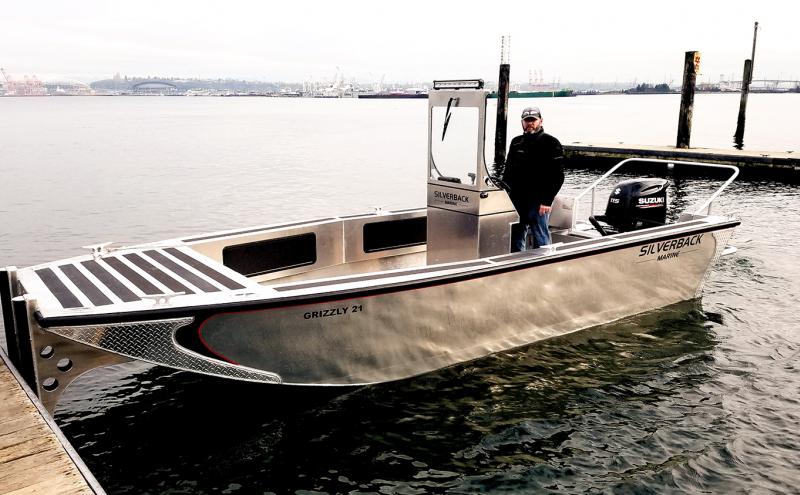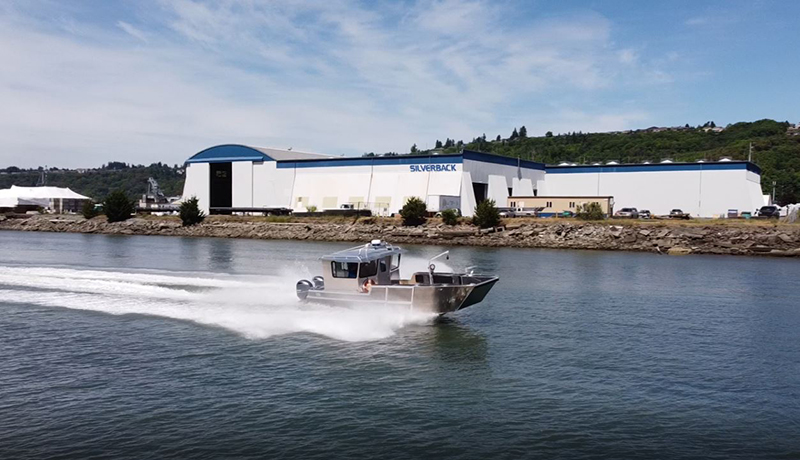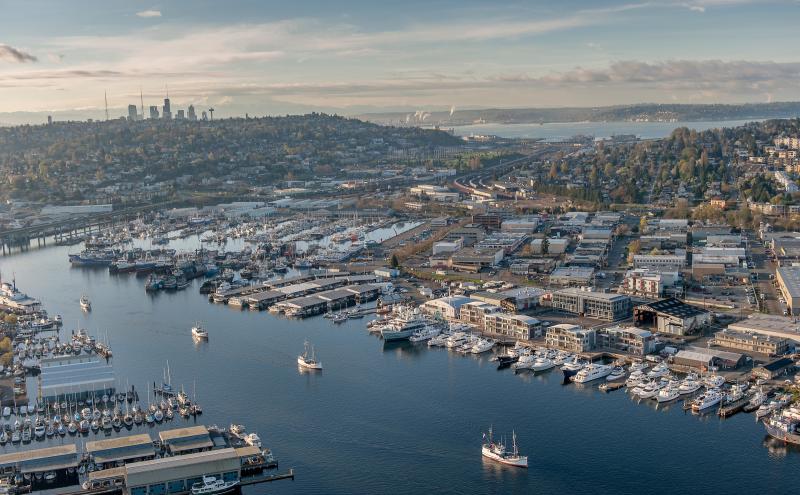
Maritime Blue, a statewide organization of maritime stakeholders, the state Department of Commerce, and the Port of Seattle, launched its second group of Maritime Innovation Accelerator start-up companies. The goal of the program is to spur new technology and investment in one of Washington’s most enduring and important industry sectors — maritime accounts for over $37 billion in economic impact annually, including 69,500 jobs. After several months of coaching, training, and purposeful networking, the companies recently pitched their products or services to a large online audience during the Maritime Blue Accelerator Showcase.
This series showcases the 11 companies participating in the second wave of the cohort. This time we’re focusing on one manufacturing start-up infusing innovation and sustainability into custom boat building.
When Ian Gracey founded Silverback Marine in 2020, he wanted to give clients in the work boat industry a personalized experience from start to finish, similar to the customer-focused approach he provided working with clients in the yacht industry.
“The workboat industry is traditionally very crude and industrial,” Gracey said. “I started a business model where we meet with the client and design a boat around their unique needs, whether it is oil clean up or marine biology. We spend time with the client to develop an understanding of what they do. Then we meet with the naval architect to come up with a better design than is currently available in the industry.”
Today Silverback Marine specializes in landing crafts, skiffs, offshore boats, barges, dredges, and catamaran boats for a wide customer base that includes maritime, government, commercial, and pleasure craft boaters throughout the region. The company is currently in full production with 10 employees at its manufacturing space at the Port of Tacoma’s Earley Business Center, a 50-acre maritime industrial park. This was once the site of Todd-Pacific Shipyards during World War II where Gracey’s grandfather once built ships.
Defining entrepreneurship

When Gracey applied for the 2021 Maritime Accelerator program, he was intrigued by the potential for networking and the exposure to government entities and other entrepreneurs.
“As a young brand we wanted to build credibility,” he said.
Gracey said Silverback Marine was able to stand out in the program as a manufacturer physically building products for the industry in the company of of tech start-ups.
In the Maritime Accelerator program, Gracey was able to broaden his outlook of what entrepreneurship is.
“It helped us see a different viewpoint; we had one idea of how a business should be run, and people working in a different field were able to offer ideas and suggestions we've never thought of,” he said. “It was helpful in making our company stronger. We heard talks from different CEOs and mentors which gave us the opportunity to ask questions to experienced people.”
It’s electric
The start-up’s participation in the Maritime Accelerator cohort exposed Gracey and his colleagues to new technologies and ideas from fellow cohort members. As a result of a partnership with 2020 Maritime Accelerator start-up Pure Watercraft, a developer of electric outboard motors, Silverback Marine is building the first all-electric pump out vessel for the Port of Lopez Island.
“With the orca whale activity out there in the San Juan Islands, the Port wanted something with minimal vessel sound emission,” he said.
As the project nears completion, it has opened up the door to future electric projects for Silverback Marine.
“I believe electric propulsion is the way of the future and we need to build greener vessels right now,” Gracey said. “Noise emission is a huge deal in the northwest. With electric motors there is no messy gas or oil spills.”
Built for success
Gracey said one powerful reason for the company’s success is its employee-first outlook.
“Everyone on the team provides input on boats and tests the boats,” he said. “It’s a happy, fun place to work. We really want to get connected with more ports of entry, including small ports like Longview, Grays Harbor, and public marinas. When we get connected with people, we can provide easier and cost- effective solutions for keeping harbors clean.”
He is also interested in getting into the autonomous boat market, piloting boats with Artificial Intelligence (AI). Currently, Silverback Marine has completed two boats for the U.S. Navy that are autonomous and amphibious.
Gracey said innovation in the maritime industry is essential as we look to the future.
“The maritime industry is a huge and vital important part of what we are in the northwest and the world. Three quarters of the earth is covered in water and boats have been around since the dawn of man, but people take it for granted compared to aerospace or computers,” he said. “The maritime sector can never and will never go away. As long as there are humans on earth going to be boats. It’s a great time to see how we can be smarter and take more responsibility for the way we operate at sea, environmentally and economically, with the least impact on wildlife.”











